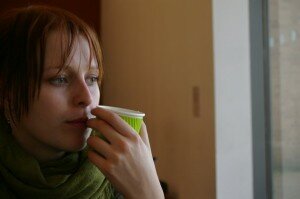Ich spreche ein bisschen Deutsch
Sunday, March 29th, 2009Since I started thinking about the concept of a self-organised or “DIY” Masters degree, most of my time has been spent communicating with other people interested in the theory of self-organised education. We’re looking at how we can improve current systems to make self-directed education more social, flexible and accessible. As I mentioned in my post Joining The Learning Tribe, the concept of self-organised learning has become a research and hopefully a professional project in itself.
But what about my own self-organised learning path – the original DIYMasters? Maybe it’s time for a brief check up?
-
Open Education:
I’m slowly making my way through the Introduction to Open Education courseware provided by Brigham Young University and thinking about Open Education as part of the greater self-organised learning project. I’m particularly interested in how learning objects can be remixed by students. -
150 Things About Friendship / Friendship Theory
This is the element of DIY Masters that was always going to be the most scattered and drawn-0ut. I wish I had more time to spend on doing or making “Things”, but it’s also the most time consuming and expensive element of the project due to the equipment I’d like to get hold of (video camera, audio recording equipment). I am reading about friendship theory as much as possible, though currently I’m limited to accessing journal articles available on the internet.
I’ll be writing and publishing a list of 100 Potential Things About Friendship very soon. -
Interactive Electronics (Arduino, Processing, Fritzing)
This is one of the subjects I’m most excited about and one which I’ve actually been able to plan myself. I’m going to blog in detail about this, but I’m hoping to produce my own remixable Open Educational Resource (OER) course book as a result of my learning. That’s in addition to producing actual Things About Friendship which blink and bleep and ping. I’m super encouraged as Amazon tells me that someone bought me a copy of Tom Igoe and Dan Sullivan’s from my wishlist… I can’t wait to find out the identity of the person who sent it! Thank you as yet unknown supporter!
-
German
The subject that’s taking up most of my time and attention at the moment is learning German. For the last 11 weeks I’ve been attending class for 16 hours a week at the collective language learning center Babylonia and studying for an additional 5 hours.
Because I’m very interested in the social sides of self-organised learning I’m really enjoying learning with peers and teachers in a classroom setting. I even met my swell Quebecois flatmate Glenn in class!
I’m now at a level where I can talk comfortably about food and have very basic conversations both written and spoken. I’m still confused about the akkusativ, nominativ and dativ cases, but using them is becoming a little more natural. Up next… The future tense and the conditional!
At a more general DIY Masters level I’m thinking about the more directed path I’d take if I were starting the project again. The way my learning project is working is a bit of a test-ground for the concept. So far I’m pretty much going it alone without a mentor to help guide me through the process of deciding what to study and in what order.
I mentioned in my last post 100 Things I Want To Learn, I’d probably have a different list of things to learn if I’d specifically asked “What 100 things do I want to learn / achieve as a result of this learning path?” In the next week I’ll be writing such a list and using it to map out a long-term path of study for the next year.
One other thing that I’m truly excited about and that will change my life is that I’ll be getting access to a university library soon. I discovered that the Freie Universität Library has free membership for residents of Berlin, and I’ll be able to order in books from other university libraries. I love libraries. An awful lot.
Which is making me think, how can libraries be brought into a self-organised learning model?


